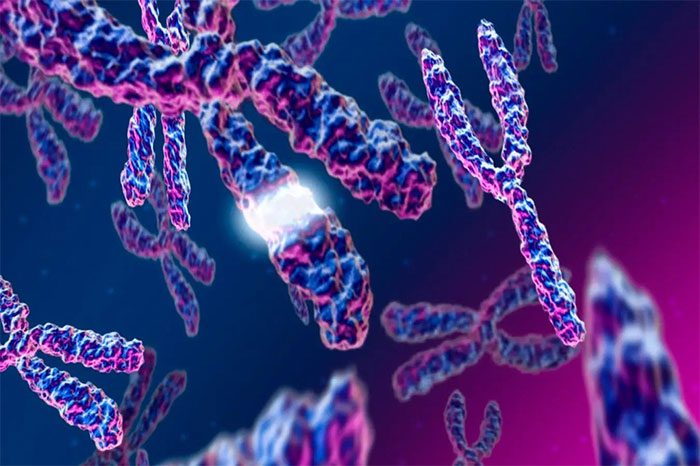By cultivating eggs from male cells, Japanese scientists have successfully created a healthy litter of mice from two male mice.
This research on same-sex reproduction in mammals opens up opportunities for developing new infertility treatments for humans. It also signals that same-sex couples may be able to have children in the future, the Guardian reported on March 8.
In the animal kingdom, some species of reptiles, amphibians, and fish can reproduce same-sex. However, achieving this in mammals, including humans, represents a groundbreaking development.

Image depicting XY chromosomes in male cells. (Photo: Science Photo Library).
The study was published in a leading prestigious journal. Scientists transformed male XY chromosome cells into egg cells with XX chromosomes.
“This is the first case of mammalian egg cells being created from male cells,” said Katsuhiko Hayashi, the lead researcher at Kyushu University in Japan. He is globally recognized as a pioneer in the field of in vitro egg and sperm cultivation.
Hayashi presented the research at the 3rd International Summit on Human Gene Editing at the Francis Crick Institute in London on March 8. He predicts that technically, we could create a human egg cell from male skin cells within the next 10 years.
Many consider this timeline optimistic, as scientists have yet to successfully create human eggs from female cells.
Previously, mice with two biological fathers could be born through a complex series of procedures, including genetic engineering. However, this is the first time eggs have been cultivated from male cells, marking a significant advancement.
Hayashi’s team is working to recreate eggs from human cells. Nonetheless, there will be significant challenges in using lab-grown eggs for clinical purposes.
Hayashi further mentioned that he personally supports the technology that allows two men to have children if it proves to be safe.
This technique could be applied to treat various forms of infertility, including Turner syndrome in women. Hayashi stated that practical applications are the main motivation for this research.
The technique will face many challenges when applied to humans. Human cells require a longer cultivation time to produce a mature egg cell. This could increase the risk of unwanted genetic changes.
Professor George Daley, Dean of Harvard Medical School, described this work as “exciting.” However, he added that creating gametes from human cells is significantly more challenging than from mouse cells.
“We still do not understand enough about human reproductive processes to achieve results like Hayashi does with mice,” Daley noted.


















































